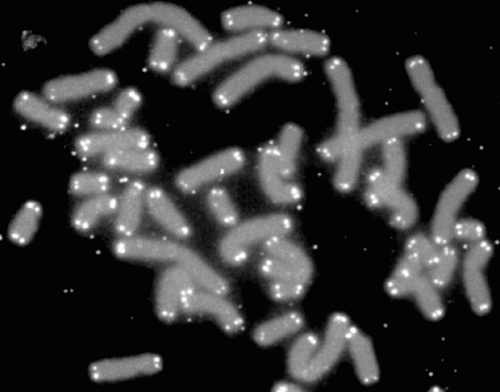
Although neuroendocrine tumors of the pancreas are rare, the available treatment options are currently limited. Researchers have now managed to identify the mutation mechanism, namely a mutation on the gene that activates the telomerase enzyme TERT, and this will potentially give rise to new treatment options. This discovery could lead to a more targeted treatment for patients who carry this mutation. The study is a joint research initiative of MedUni Vienna, Paracelsus Private Medical University in Salzburg and the Medical University of Innsbruck and was initiated and led by MedUni Vienna. The paper has now been published in the specialist journal Cancers.
Between 80 and 160 people a year develop a neuroendocrine, that is to say hormone-related, pancreatic tumor. The trend is rising sharply, and it is predominantly older people who are affected. Ten percent of these cancers are hereditary, the rest occur sporadically. It is known that, in the case of hereditary tumors, there is an activating mutation of a specific gene, the Telomerase Reverse Transcriptase (TERT) gene.
Mutation activates telomerase
The reasons behind the mutation of non-hereditary tumors were hitherto unknown. In the recent study, the researchers led by Klaus Holzmann, from MedUni Vienna’s Institute of Cancer Research and member of the Comprehensive Cancer Center (CCC) of MedUni Vienna and Vienna General Hospital, have shown that a mutation in the TERT region is also present in around 10% of this patient group. For their analysis they used an extremely sensitive genetic sequencing technique known as pyrosequencing.
Says Holzmann: “The TERT gene promoter mutation results in increased production of the enzyme telomerase. Telomerase enables cells to divide indefinitely, which leads to cancer. If we could manage to inhibit the production of telomerase, we could also stop the uncontrolled growth.”
Since drugs are already being developed to inhibit the production of telomerase in other forms of cancer, it is hoped that these will also be effective against neuroendocrine pancreatic cancer. The results still need to be validated and refined in further studies but could represent a new targeted therapeutic approach.
What is the function of telomerase?
Source: Read Full Article



